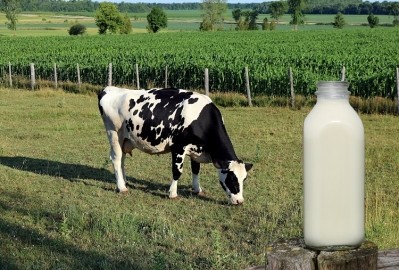Fraudulent ‘Made in Denmark’ claims spark blockchain development for SMEs

Researchers from the Technical University of Denmark (DUT)’s Food Institute, together with the university’s Compute and Skylab departments, are working to design blockchain solutions for small and medium-sized food producers.
The ‘Bottom-up Blockchain’ project aims to offer local companies a secure, trustworthy platform to track and trace their supply chains. The pilot, which will run for one year, has received DKK 3.6m (€4.8m) in funding from Danish philanthropic foundation Industriens Fond.
While some bigger players in the food industry are beginning to implement blockchain across certain supply chains, such as supermarket retailer Carrefour and food giant Nestlé, SMEs have been slower to get on board.
“If you look at the food sector in Europe, 99% of all registered companies are SMEs,” Henning Høgh Jensen, who heads up Denmark’s DTU Food Institute, told FoodNavigator. And while technology providers have been offering blockchain services to these smaller players, “ it doesn’t seem to be taken up”, Høgh Jensen continued. “SMEs are not using it.”
“With blockchain technology, it will be possible to establish a platform for sharing data across the entire land-to-table chain in a safe and efficient manner. The finance industry has successfully adopted the new technology, and we believe that the time has come for the food industry to make use of it,” says Henning Hogh Jensen, head of the Department of Food and Drug Administration and project manager for the new project.
For DTU, the reason behind this lag is two-fold: SMEs are intently focused on their operations; and may lack the capabilities required to adopt blockchain technology.
“We want to design [blockchain] technology to fit the companies, not to make the companies fit the technology,” Høgh Jensen explained. “A system that embeds the data documentation they already have, and adds more transparency.”
Blockchain is an open and secure digital ledger that enables a permanent record of transactions.
Food brands are increasingly adopting the technology to increase traceability across the supply chain, as well as build consumer trust.
This year alone has seen French supermarket Carrefour apply blockchain to its Carrefour Quality Line (CQL) micro-filtered full-fat milk chain, and Nestlé adopt blockchain for its Mousline instant mashed potato products in France.
Coop Italia has also developed a blockchain prototype for its own-label organic eggs.
Combatting food fraud in Europe
The project will specifically target Danish SMEs that produce upmarket products. Higher-end products, which have greater market value, are more susceptible to fraud, Høgh Jensen told this publication.
“Many SMEs have upmarket products that may come from a Denominazione d’Origine Protetta (DOP) area,” he said, citing high-value products such as virgin oil, wine, olives, honey, nuts, chocolate, fish and rice.
Plagiarism is rife in this high-end sector, he continued, using fraudulent ‘Parmesan’ cheese and certain fish species in the US as examples.
Denmark – a country that is renowned for having good food security and high-quality products – is also a target for copy brands abroad. A ‘Made in Denmark’ label can add instant value to a low-grade product.
“Butter cookies from Denmark is a big issue in Asia,” Høgh Jensen told this publication. Counterfeit ‘Danish butter cookies’ can be found to contain palm oil instead of butter, creating a food quality, rather than food safety, issue. “This is not a problem for health, but the company [in question] is being cheated,” he continued.

Milk powder is another example. Danish dairies can sell their product at a higher price in certain Asian countries due to their high quality and good reputation. But without blockchain-level security, it is difficult for buyers to verify exactly where the powdered milk comes from.
Blockchain could also help verify the authenticity of imported raw materials, such as nuts, cocoa and coffee. “In Denmark, we don’t have good documentation of raw materials we import,” Høgh Jensen explained. This is because long supply chains – where food manufacturers are purchasing from suppliers rather than primary producers – don’t always come with detailed documentation. “Variation in raw material [can be] huge, which affects the value of products manufacturers can produce.”
Aside from benefiting SMEs and consumers, implementing blockchain technology could also help authorities verify product authenticity. Indeed, rather than undertake the often cumbersome process of analysing food samples, blockchain could provide greater transparency for regulators.
“This project has created a lot of interest among stakeholders out there,” said Høgh Jensen. “Authorities are interested because authenticity is a big issue for them.”

























